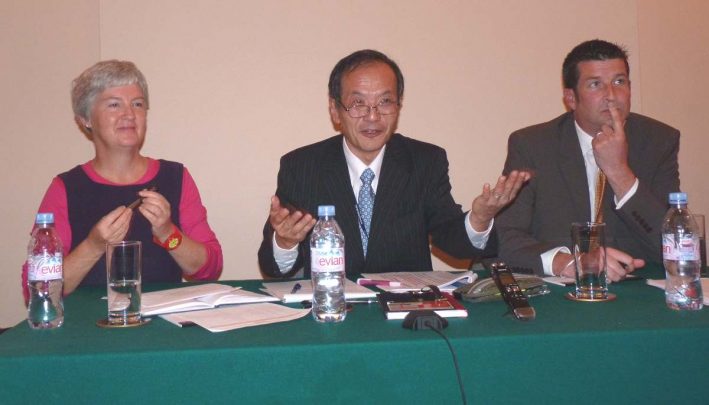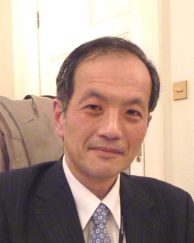 Seminar
SeminarTuesday 23 October 2012
6:00pm – 7:30pm
Reset or Restart? The Impact of Fukushima on the Japanese and German Energy Sectors
ドリンクレセプション 8:30pm
13/14 Cornwall Terrace, Outer Circle (entrance facing Regent's Park), London NW1 4QP
大和日英基金 主催
Even before the meltdowns at Japan’s Fukushima nuclear power plant, the global energy sector was in a period of uncertainty caused by a variety of factors: the rise of non-conventional fuels, uncertainty over future demand, the falling price of renewable energy technology and the lack of clarity over any future international climate change regime. This comes at a time when energy stability is necessary to facilitate new investment to replace ageing capacity and to meet predicted increases in global energy demand. The Fukushima accident has had a dramatic impact on the energy policies of two of the world’s largest economies: Germany and Japan. Within months of the accident Germany had revised its energy policy and is now phasing out nuclear power. Meanwhile in Japan, public and political opposition has led to the temporary closure of virtually all the country’s nuclear power plants, as discussions continue on nuclear power’s role in Japan’s future. These developments offer us important insights into rapidly-changing energy policies. Professor Catherine Mitchell and Antony Froggatt discussed the global importance of these issues and also presented an overview of the impacts in other countries. How have governments in Europe, Asia and the Middle East responded to public concerns and revised engineering and economic assessments to abandon or reduce their nuclear ambitions? Why are some governments continuing or even expanding their nuclear plans? This seminar was chaired by Jun Arima, Director General of the Japan External Trade Organisation (JETRO) in London.
You can see Antony Froggatt’s presentation here:のダウンロード
You can see Catherine Mitchell’s presentation here:のダウンロード
コントリビューターについて

Antony Froggatt
Antony Froggatt studied energy and environmental policy at the University of Westminster and the Science Policy Research Unit at Sussex University. He is currently an independent consultant on international energy issues and a senior research fellow at Chatham House (The Royal Institute for International Affairs) where he has specialised in energy security and in particular in emerging economies, with extensive work in China on the establishment and methodologies of low carbon economic development. He has worked in Europe andAsia with environmental groups, academics and public bodies, including the European Parliament and Commission, specialising in the development of policies, initiatives and capacity building. He is the author or co-author of dozens of reports, including the “World Nuclear Industry Status Report” (2012), “Sustainable Energy Security, Strategic Risk and Opportunities for Business” (2010) and “Changing Climates” (2007).

Professor Catherine Mitchell
Professor Catherine Mitchell is Professor of Energy Policy at theUniversity of Exeter. Previously, she has worked at the Universities of Warwick, Sussex and California, Berkeley. Her Masters degree was in Energy and Environmental Studies (Boston,USA) and she has a PhD in Technology and Innovation Policy (Sussex.) She is Lead Author of two chapters for reports of The Intergovernmental Panel on Climate Change (IPCC) and she holds an Established Career Fellowship with the Engineering and Physical Sciences Research Council (EPSRC). Professor Mitchell is Principal Investigator of the ESRC/EPSRC interdisciplinary research cluster Energy Security in a Multi-Polar World (ends 2013), amongst others. She was a Member of the UK Cabinet Office’s Energy Review (2001-02) and a member of the UK Government’s Energy Advisory Panel (1998-2003). She has also advised numerous national and international companies, NGOs and institutions on various aspects of the transition to a sustainable energy system.

Jun Arima (Chair)
Jun Arima is Director General of the Japan External Trade Organisation (JETRO) in London, seconded by the Ministry of Economy, Trade and Industry (METI). From 1992 he served in the Agency for Natural Resources and Energy (ANRE). In 1996, he was sent to the OECD as Councilor (energy advisor), to the Permanent Delegation of Japan. He served in senior positions in ANRE following his return to Japan. From 2002, he spent four years in Paris as Head of the Country Studies Division for the International Energy Agency (IEA). His activities in international climate and energy issues have seen him recognised internationally, most recently as Japan’s chief negotiator at the UN Climate Talks in Cancun, Mexico in 2010.